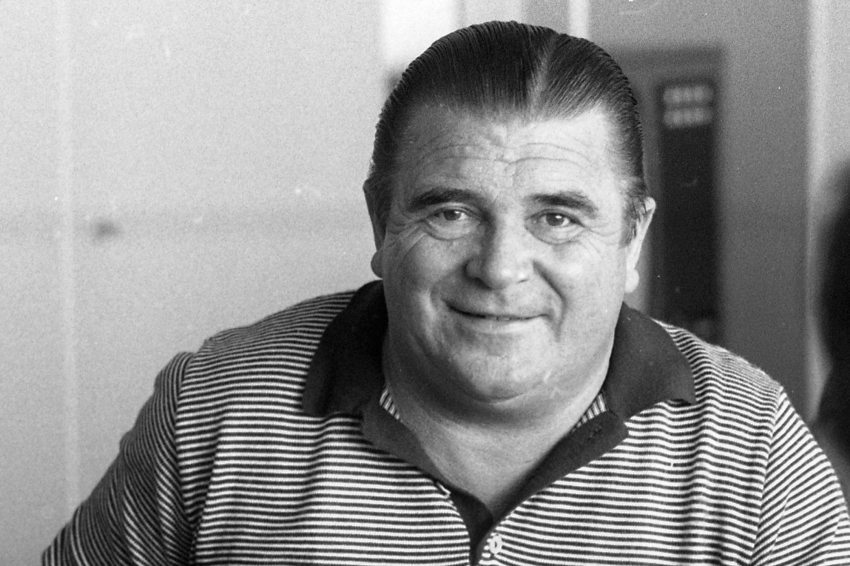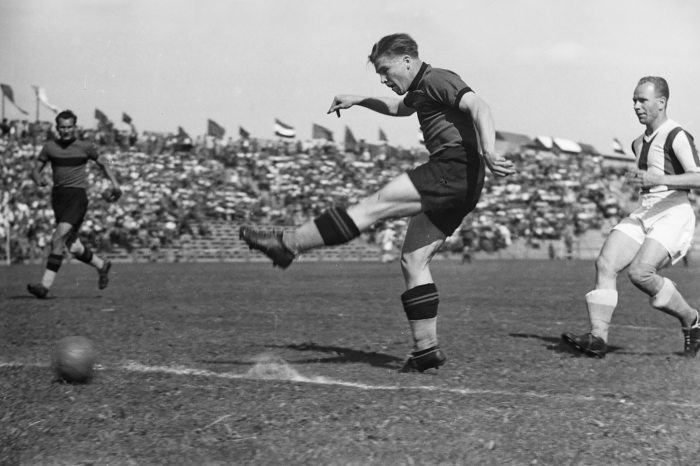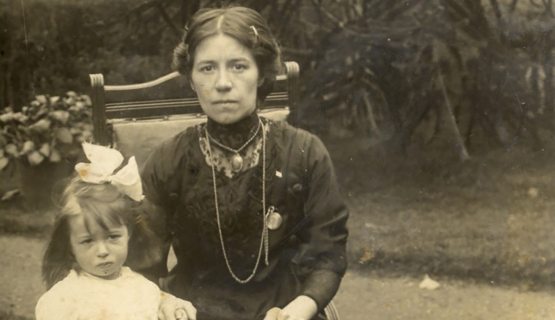The champion who found his way home - Ferenc Puskás has everything we Hungarians love about ourselves
There aren’t many Hungarians who do not have at least one, direct or indirect memory of Ferenc Puskás. For me, the first of these memories is when as a child, I had a chance to shake hands with the legend when he visited Balatonfüred for a gala match, back home after decades in Madrid. He was no longer on the pitch, he came in civilian clothes, elegant but relaxed. Possibly it was only my grandfather, the same age as him, who appreciated our meeting on the sidelines more than I did, watching his youthful icon signing autographs for his grandson. But I, as a little boy, also sensed Uncle Öcsi's exceptional charisma.

My other precious memory is of the death of the world's emblematic Hungarian a decade and a half later, but it is still uplifting. Puskás moved to the football pitches of Heaven in November 2006, when a trip to Prague for Advent had already been arranged for me and my group of friends. Unfortunately, this coincided with the funeral of Uncle Öcsi (Little Brother) in early December, which we would have loved to attend. We ended up designing and producing custom T-shirts with his name, jersey number 10 and portrait for the trip, and all fifteen of us wore them as a memorial on the day of the funeral in the Czech capital. There was not a tourist, local or foreign, who did not nod in recognition of our attire. These experiences, the one in Balatonfüred and the one in Prague, together sent out a message: Puskás lives in the hearts of everyone, regardless of generation or nationality.
"If there was a poll to find out who the most famous Hungarian is, Ferenc Puskás would win it, although we have quite a few Nobel Prize winners – says Dr Zoltán Borbély, a sports lawyer, whose uncle Gyula Várvizi used to handle the currency affairs of the Golden Team, and whom Uncle Öcsi took into his confidence as a journalist in the 1990s, on account of family connections, too. - I am proud to have had a good relationship with several members of the Golden Team, and my aunt even wrote a poem to them. In the 1990s, I was able to follow Puskás' work as captain of the national team closely. He was so fond of tradition that he always wanted to stay with the team at the prestigious Grand Hotel at Margaret Island, as he used to do when he was a player. And he had a snappy answer for everything. When asked what should be done about ailing Hungarian football, he replied that a good doctor should be brought in, and when a journalist asked him when good football would be played in Hungary, he replied: on Tuesday. When the opponents were leading, he gave the boys the task: 'see, there can be gaols scored here, so do that, too', and they turned the game around."
Golden feet and golden heart
Ferenc Puskás was born on April 1, 1927, but he was teased so much about April Fools' Day that after a while he just said April 2 everywhere.
His generation, a generation that experienced war, shared many common traits, for example, the years of bloodshed taught them to eat very fast. Another interesting feature: few of them grew very tall, and the full-length statue of Puskás on the promenade in Óbuda is a good illustration of the 172-centimetre height of the "Speeding Major" teaching children to juggle with a ball. Of the Golden Team, only Gyula Lóránt was taller than 180 cm, which shows that playing ability and individuality have never been determined by height (just think of Maradona or Messi later).
Moreover, Puskas not only had a golden left foot and a golden team, but also a heart of gold. He helped everyone he could. Unfortunately, there were some he could not help. When Sándor Szűcs, a footballer from Újpest, tried to leave the country with his love, Erzsi Kovács, a singer, on the word of an agent, he was caught in a planned operation and executed for illegal border crossing as a policeman (the Újpest players were all part of the police personnel). Puskás tried to intercede with Mihály Farkas, the Minister of Defence at that time, to save his fellow player, but the politician only accepted the request after the sentence had been carried out and "unfortunately there was nothing more he could do". History has not been kind to Puskás in this respect, either during the Rákosi era or after 1956: in Spain (Franco) and Chile (Pinochet), he had to play football and coach under dictators, and in Greece during the military regime.
He did not seek the company of dictators, but rather they sought his.
"He could easily have been a snitch, a darling, a man who harmed others, but he never abused his privileged position, he never harmed anyone, even though he spent most of his life in a dictatorial climate", continues Dr. Zoltán Borbély, to whom Puskás gave his last interview in 1998. Interestingly, the legend, who was already suffering from Alzheimer's disease at the time, also met Olympic champion boxer László Papp during the filming. "What are your memories of László Papp? - Lots. - Do you like him? - A lot. - Why? - Because he's a very good guy." Uncle Öcsi gave these answers to the reporter's questions and then patted the thigh of László Papp, who was sitting next to him. The same László Papp who, at a boxing match in Madrid, bribed the Spaniards in the audience to cheer for the Hungarian icon, thus creating a home atmosphere. - The word ‘simple’ in its most positive meaning characterised Puskás. He was a puritan, pure, straightforward, helpful man, whose parents loved each other dearly, and he carried this example on throughout his life. He was able to remain a man even under dictatorship, which is perhaps the most difficult thing."
Taboo and then admiration
How difficult it must have been is confirmed by Péter, a football coach, who is the son of József Bozsik, another world-class player of the Golden Team, Puskás’s good friend. It is interesting to note that Puskás and Bozsik not only knew each other well from the pitch but also grew up in the same neighbourhood in Kispest.
It is a miracle of life that the two world stars were born in close proximity to each other.
"For both of them to become outstanding personalities and achieve world-famous results, a kind of divine guidance, a special alignment of the stars was necessary” – says Péter Bozsik referring to the importance of the coincidences of fate.- "That said, I naturally think of my father first and foremost as a father, and of Puskás not as my father's neighbour or friend, but as the brilliant footballer. Because after 1956, Uncle Öcsi's personality was not looked upon very favourably for political reasons, I, born in '61, heard little about him at home. Politics was a taboo in my family too, and my parents were of the opinion that it was better not to talk about certain things because then I would certainly not be able to let anything slip at school, where they knew my family, and so they paid special attention to me. But I do know that my father - who as a sportsman was able to travel relatively often - and Öcsi still met whenever they could, in the Matthias Cellar in Vienna and later as old boys in Warsaw and Belgrade."
According to Peter, who later served as national team captain of the Hungarian national team, like the other members of the Golden Team, his father received serious offers as a player from abroad, including from AC Milan and Atlético Madrid. These trips were several weeks, even months long at that time, so the wives often accompanied their footballer husbands, but as both his parents had four brothers and sisters at home, they always returned to Hungary for the family. So he, too, learned about Puskás' life mainly from books, films and memoirs, meeting him in person only once.
"Unfortunately, when Uncle Öcsi was allowed to return home for the first time, my father was no longer alive and my mother was in hospital.
Puskás gave a dinner for a small group of friends: there were about 150 of us...
So I wouldn't say it was an intimate occasion, but I represented the Bozsik family. But as a withdrawn, quiet child, I could hardly get near him, there were so many people crowding around. There was a lot to ask, as we know that for a long time his name was not even allowed to be written down. When he won the biggest international trophy, the European Champion Club’s Cup three times with Real Madrid, it wasn’t even allowed to write down that he played, let alone that he scored goals. In any case, I know and I have seen that he always attracted people to him with his style, his manner, he was loved by everyone, he was a very good-hearted man. Whenever a Hungarian needed help, even as a star in Spain, he would selflessly support the ones in need, even with his own money. You could even sleep at his place. I have never heard a bad word said about him!"
The whole 20th century is in his fate
All this may also help posterity to understand the Puskás phenomenon, with which Hungarians all over the world are so deeply identified that, for example, those who take a job abroad will sooner or later hear the name Puskás from the locals, or even be nicknamed Puskás by them - just because they are Hungarian (this is the author's personal experience). But what exactly Ferenc Puskás, the man means to us Hungarians today is perhaps most accurately expressed - or at least in a way that is closest to our hearts - by Vajk Szente, the director of the musical about Puskás (entitled: Puskás the Musical):
"When we started working on the piece with producer László Szabó, we thought about it and came to the conclusion that Ferenc Puskás has everything we Hungarians love about ourselves," he says. -
He was a man of a cheerful nature, sharp-witted, cheeky, honest, lovable and gallant. And an urchin.
These were his most important qualities and we identify these in our best selves, too. These personality traits were all there in him, and he was able to show these to the world about us. Or, if we take the most negative Hungarian quality, pessimism, Puskás may have become important to us because he was a winner. Basically, this is why we love our other athletes so much, too, because we like to see that we have winners. And what we also love to see is the loyalty that was also strong in Puskás. He was Hungarian to his last breath, he carried his Hungarianness with him, he proclaimed it, he respected it. We can repay him by preserving his memory, because his life's journey reflects the fate of the Hungarian people in the twentieth century. That for a time we were not ourselves, but then we found our way home..."








